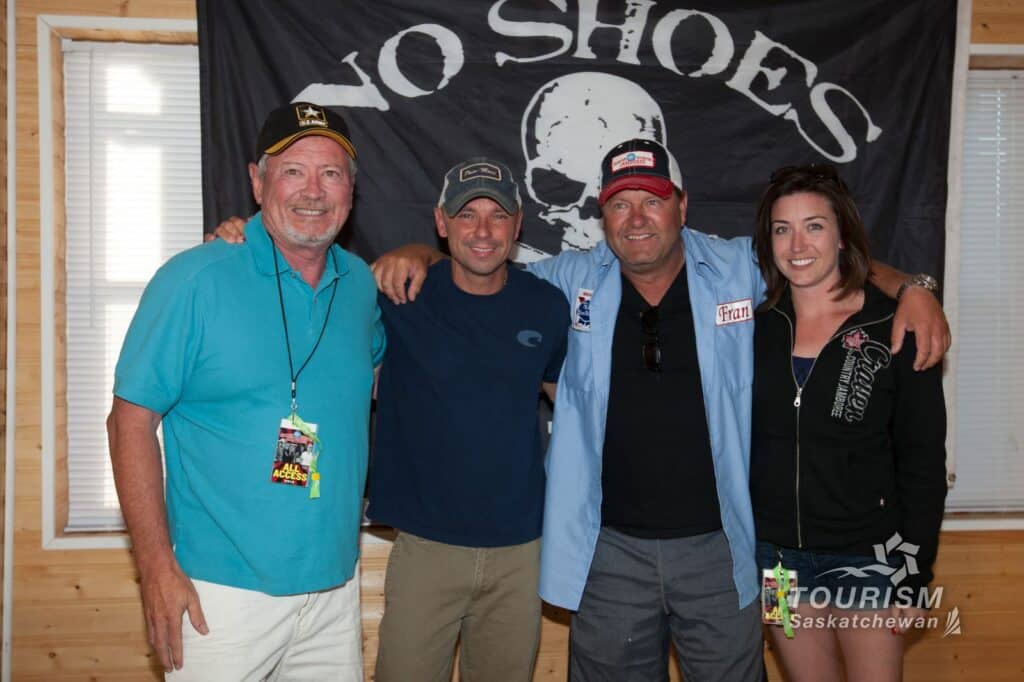Features
Neste Live!’s Gil Cunningham Talks Talent Buying & The Country Market

Gil Cunningham, president of Neste Live!, may be hard to beat when it comes to booking the largest number of festivals in the U.S. He handles 18 festivals including WE Fest in Detroit Lakes, Minnesota, all of the editions of Country Thunder (three in Canada and four in the U.S.) and Country Jam Colorado, along with booking entertainment for a number of fairs including the L.A. County Fair and Utah State Fair.
Cunningham has been working in the business since 1988. Neste Event Marketing was formed in 1995 as a corporate sponsorship and event marketing agency, later adding talent buying and event production services. Live Nation acquired a majority stake in the company in 2019 and established Neste Live!
“As a Live Nation joint venture, I know there are some people that still don’t understand – we’re outside the box, we’re talent buyers, not promoters,” Cunningham says. “Live Nation wanted a company that was in that soft ticket, fair, festival business. It made for a natural partnership and it’s been a major, positive advantage. Live Nation provides a lot of access to information … and basically handed over Country Jam and Headwaters Country Jam to produce. That was a great addition.”
Pollstar caught up with Cunningham – who has been awarded the Academy of Country Music Talent Buyer of the Year Award multiple times – to discuss talent buying, the country market and WE Fest’s 40th anniversary.
Pollstar: Can you share your process for booking talent for a festival?
Gil Cunningham: I get with the festival promoters and we go through the artists that they’re really interested in, can be based on the promoter’s personal wish list. You identify the artists that will sell tickets and you identify the young and up-and-coming artists. You’ve got a little mix of something old, something new.
Most of the festivals we do are strictly country music, some of the festivals will experiment.
How have you seen the country genre change over the years?
I think in addition to the genre and the acts changing, the fanbase has changed. When I was first involved with doing country music – there were the older artists, Willie Nelson, Johnny Cash, then there were the young country fans that were interested in the new acts coming out. There was a definite division between the young and old, but the younger demo has changed because they’re not strictly country music fans. I’ll use my daughter as an example; she was home from school at Ole Miss and she started running throughout her playlist – country, hip-hop, pop etc. So what happened is the younger demo now is not genre-specific so much as they’re artist-specific. They love Lizzo and Morgan Wallen. And as a result of that you’re seeing some of the country artists getting into country pop, country rock, so there’s more of a wide range of country music.
We used to follow the radio playlists, see who was popular, follow sales, a country artist would debut a new song, it would be eight, 10 months before they’d release a second song – in this day and age, Morgan Wallen just [released] 30 songs. In terms of how the music is distributed and how people listen to music, the acts are blowing up faster.
What’s the festival market like these days? Biggest challenge?
All the costs have gone up substantially. I have one festival where our costs went up half a million dollars in one year: the cost of power, catering, anything that has to do with travel. With the cost of fuel, production companies had to start charging more to cover their fuel costs. This experience with the prices going up so high, we’re trying to deal with it, the problem is you can’t really jump up the [ticket] prices. It’s becoming more challenging, I’m hoping some of these numbers start going back. It’s expensive to produce a festival; if you’re starting a new festival, it’s even more expensive. It’s risky starting up a new festival, so unless you have all of your parameters covered, it’s tough to do. The agencies now require that a festival pay 100% up front.
WE Fest has a big anniversary this year. Can you talk about that?
WE Fest started in 1983, it’s one of the oldest festivals in the U.S. Live Nation purchased that festival in 2019, so it’s our third year [booking] it. We were fortunate that we were able to book Morgan Wallen this year. Morgan’s not doing a lot of festivals and he’s selling extremely well. This past year we had him on a number of country festivals. When you’re looking to book you have to find a major artist that’s going to be your major ticket driver, that will dictate the success of your event. If you don’t have that artist your numbers will be softer than you expect. … This is the third year of rebuilding for Detroit Lakes. We’re fortunate to put together this type of lineup.
What’s your favorite thing about your job?
I think probably the relationships with the clients we’ve developed over the years. It’s been a very rewarding business for me. [The live industry] is a small business in terms of all the people who are involved. The ultimate success is for a festival to be successful.
Probably one of the things I’m most proud of as a talent buyer is the Country Thunder brand. It’s a big brand, they do seven festivals – three in Canada and four in the U.S. I’ve been with them in some cases from the very beginning and I’m still the buyer today.